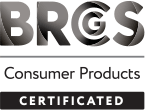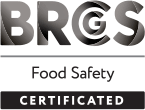Attribute to Luc Emprin, Speciality Oils Commercial Director at Kerfoot
Since the Food and Drug Administration (FDA) began regulating sunscreen in the 1970s, it has been formulated with parabens, silicones, preservatives and synthetic fragrances. Ingredients such as oxybenzone, octisalate and avobenzone in traditional sunscreens are effective because they absorb the sun’s UV rays and through a chemical reaction, the sunscreen dissipates the UV rays, thus protecting the body from being hit.
Although not conclusive, recent research has suggested that some of these chemicals are potentially harmful – to both the skin and ocean environments. Scientists are trying to understand the effects of the ingredients in chemical sunscreens and the FDA is finally beginning a process to update the way it regulates sunscreens in an effort to bring them in line with 21st-century science. Whether fazed by the recent research or in a bid to be more mindful of the sunscreen they choose, more consumers are looking to natural and organic sunscreens to counter potentially damaging side effects.
Market research shows that as the two billion-dollar suncare industry continues to grow, organic products will be the driving force. With all this in mind, is it time for formulators to take advantage of natural ingredients to meet changing sunscreen needs and create natural, organic and ocean-friendly alternatives?
Natural ingredients such as raspberry seed oil, which is said to have an SPF (Sun Protection Factor) of 30-50, carrot oil, with an SPF of 38 to 40, and sunflower oil, with its high beta-carotene content, which can reduce sun sensitivity, are all excellent alternatives for suncare applications. These oils and more are offered by Kerfoot, a leading manufacturer and supplier which produces bespoke innovative infusions and customised blends at its in-house laboratory as well as cold-pressed oils in fully certified UK and French processing facilities.
Many brands are already adopting natural oils to address the fear of toxic chemicals leaching from consumer products. Take ThinkBaby Sunscreen for example – formulated with ingredients such as Zinc Oxide, sunflower oil and raspberry seed oil, the sunscreen has an SPF of over 50 and has the highest level of biodegradability. The sunscreen has a perfect score from consumer reports and it’s no wonder, with its ingredients including nourishing, soothing and antioxidant benefits while still providing strong UVA and UVB protection.
These natural ingredients aren’t the only ones which help protect against sun damage. Coconut oil, a highly saturated oil which stays on the outer layers of the skin has a natural SPF of 4-5 and contains antioxidants that help protect the skin from harmful radiation from the sun. Cocoa butter helps sustain sunscreen on the surface of the skin, providing longer lasting protection, shea butter contains cinnamic acid, which naturally filters UV-B radiation and Vitamin E oil is known to be an effective neutraliser of the free radicals that cause cell damage following UV exposure. Kerfoot is proud to be a supplier of butters and oils such as these, which are pressed in BRC accredited manufacturing facilities and certified organic by the Soil Association, helping formulators replace harsh chemical ingredients in formulations.
It is clear that there is a wealth of opportunities for manufacturers to harness the power of natural ingredients and combine them to give friendly, broad spectrum and nourishing UVA/UVB coverage.
For product developers and formulators looking to develop sunscreen with the benefits of natural ingredients, Kerfoot Group has the expertise, high quality and certified oils and technical support and equipment in place to support new product development.












